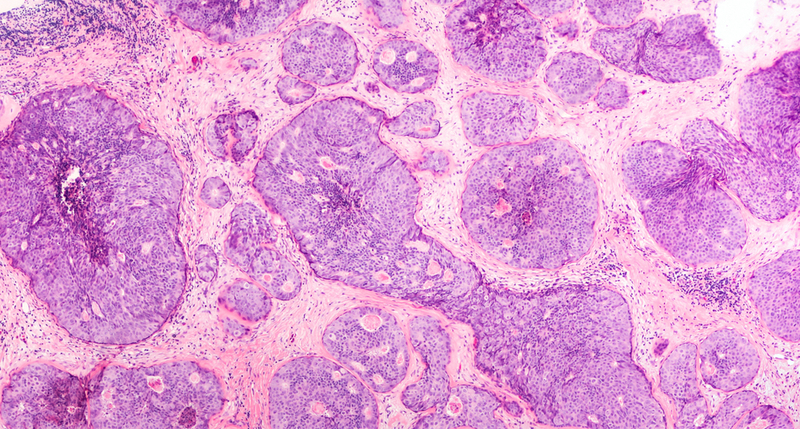This new switch may control aggressive breast cancer
ANI Sep 01, 2018
Turns out, aggressive breast cancers return to a flexible, earlier state found in fetal breast tissue. This cellular reprogramming may be the key to cancer's ability to form new cell types, evolve drug resistance and metastasize to other locations in the body.

A team of researchers at the Salk Institute has identified a master switch that appears to control the dynamic behavior of tumor cells that makes some aggressive cancers difficult to treat. The gene Sox10 directly controls the growth and invasion of a significant fraction of hard-to-treat triple-negative breast cancers.
The new work documenting Sox10's role in this process represents a major milestone in researchers' understanding of cancer and could open new avenues for diagnosing and treating aggressive breast cancer as well as other types of intractable cancers.
"Two things that make triple-negative breast cancers so hard to treat are their heterogeneity--they have many different cell types within a single tumor--and their ability to move around and colonize new areas, the process of metastasis," says Wahl, senior author of the study.
In order to develop from a single cell into a complete organism such as a mouse or human, embryonic and fetal cells have the ability to divide rapidly, move throughout the body and change into multiple different cell types--properties known as "plasticity." But adult cells turn off this plasticity, which, for reasons that aren't fully understood, can get reawakened and turn cells cancerous.
In the new study, researchers began by examining which parts of mouse mammary cells' DNA--which is tightly coiled in a package called chromatin--was uncoiling to make specific genes more accessible. This was the team's first clue to which genes might be active during development. The chromatin analysis revealed that in both fetal cells and a subpopulation of breast tumor cells, the same areas of the genome were becoming accessible--areas where a master gene regulator called Sox10 is known to bind to DNA to initiate a variety of developmental processes. It seemed like a gene regulation "smoking gun."
Next, the team showed that Sox10 is actually bound to genes in the open regions to activate them, thereby directly regulating genes responsible for cell type, mobility and other features relevant to breast cancer's ability to evolve and metastasize. Breast cancer cells with high levels of Sox10 changed to become much more primitive and acquired the ability to move. The results were so dramatic that the team repeated the experiment with a technique to keep Sox10 from binding to those genes. This time, without access to Sox10, none of the breast cells that had been programmed to turn cancerous were now able to form tumors.
The researchers caution that strategies to block Sox10 will require further development and will have to be tested for safety to determine if they impact normal cellular functions. However, the fact that Sox10 regulates many genes potentially linked to aggressive breast cancer offers the potential to target one or more of them as the basis for developing "personalized" therapies for metastatic breast cancer. The findings appeared in the Journal of Cancer Cell.
-
Exclusive Write-ups & Webinars by KOLs
-
Daily Quiz by specialty
-
Paid Market Research Surveys
-
Case discussions, News & Journals' summaries